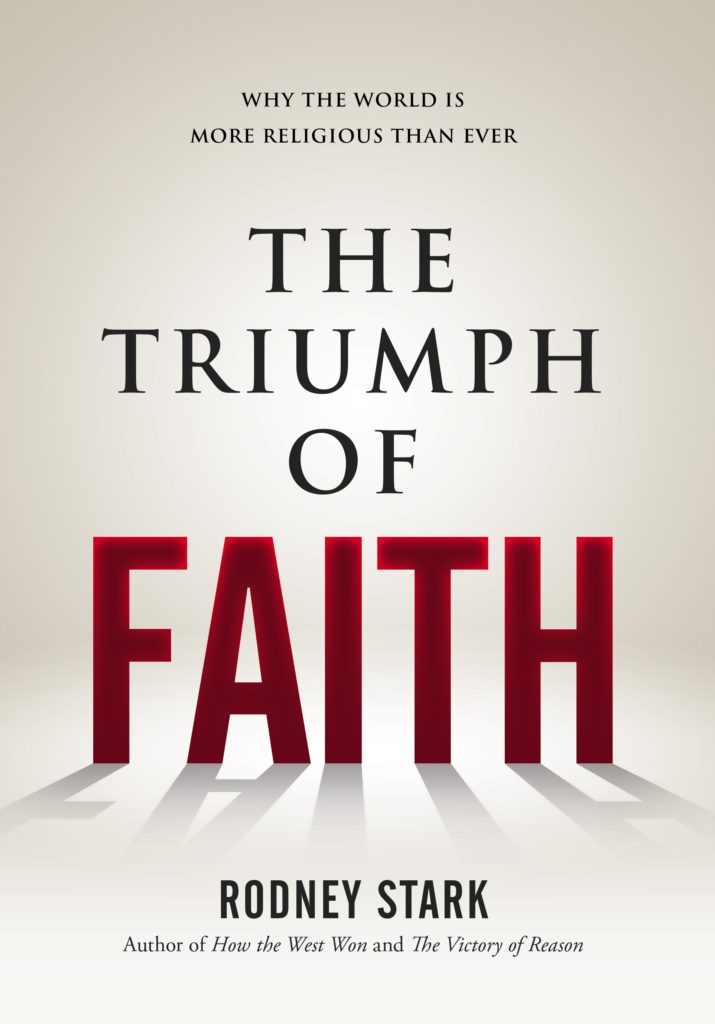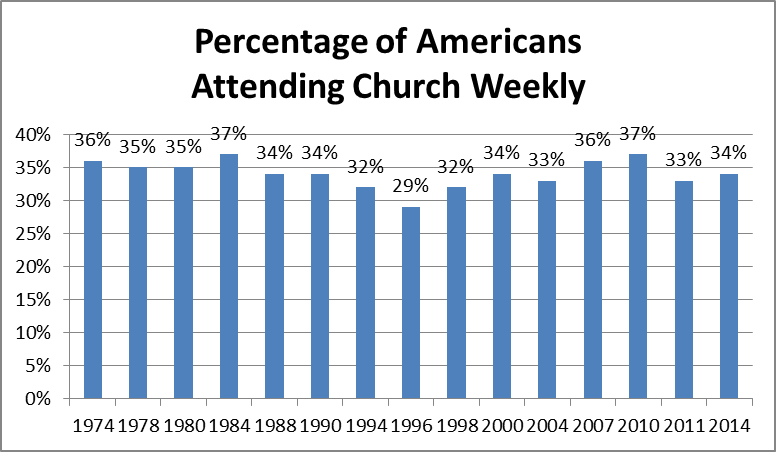The Triumph of Faith: Why the World Is More Religious Than Ever, by Rodney Stark. Wilmington, DE: ISI Books, 2015. 272 pages.
Defying popular perception, religious faith remains the norm for the vast majority of the world’s population. Rodney Stark makes a persuasive case for this thesis in his recent book The Triumph of Faith. By comprehensively examining the latest statistics, he debunks reports of widespread secularization as proclaimed by trendy irreligious voices within intelligentsia and media.

Stark – who serves as co-director of the Institute for Studies of Religion and a distinguished professor at Baylor University – demonstrates that faith remains an essential component of daily life around the world, even in the supposedly post-religious West. If anything, religion has been making a comeback.
“Contrary to the constant predictions that religion is doomed, there is abundant evidence of an ongoing worldwide religious awakening,” Stark concludes. “Never before have four out of five people on earth claimed to belong to one of the great world faiths.”
In The Triumph of Faith, Stark profiles the condition of religion in major regions and nations across the globe, providing meticulous research to support his claims. He shows how religion has proved resilient and even grown in the most challenging places on earth, dedicating chapters to Europe, Latin America, the Middle East, Sub-Saharan Africa, China, the “Four Asian Tigers,” India, and the United States.
He relies heavily on statistics and polling numbers to make his case, especially his special access to Gallup World Poll data. Based on more than a million interviews in 163 countries since 2005, Stark commented on the data from Gallup World Poll: “Never has a scholar had access to such a body of data, and I am very grateful to the Gallup organization for its generosity.”
Given this unprecedented amount of statistical information, Stark challenges the central claims of those propounding the worldwide rise of irreligion. He writes that those insisting science, wealth, and globalization continue to subsume religion hinge their arguments on “the lack of church attendance in modern Europe” as proof. But Stark counters that “there has been no decline because hardly any Europeans attended church in the Middle Ages,” and that belief in “superstition and magic” predominated.
In Chapter 2 of The Triumph of Faith, Stark debunks the myth of secularization in Europe. He observes, for example, that 90 percent of Europeans living in the Dark Ages lived too far away from a local church to attend, so widespread church attendance was impossible. When they did attend they often acted disrespectfully and disrupted services.
He shows that today wealth and human development in Europe fail to correlate with lower church attendance and prayer. Rather, leftist politics in churches and hypocritical clergy who deny key Christian tenants have driven away Europeans. They have turned instead to mystical alternatives.
“Church attendance may be low in Europe, but unconventional supernaturalism is thriving,” Stark writes. He argues these beliefs resemble the religious sentiments dominant in the Middle Ages, countering claims that Europe is secularizing.
The secularization narrative fails to hold water in the U.S., too. Stark implodes various key claims that secularists spread without proof. For example, he challenges the supposed rise of “nones” – those who identify with no religious affiliation – denying this represents an alarming trend.
“Younger people, especially those under thirty, have always been, and probably will continue to be, less likely than older Americans to attend church regularly” due to their active lifestyle, Stark explains. Only the peer pressure to outwardly identify with a religious group has diminished.
Church attendance has also remained relatively stable in the U.S. It has varied only within the limits of statistical error during the past three decades, according to data from the General Social Surveys and Baylor Religion Survey, as cited by Stark:

Like in Europe, leftist politics including Marxism and non-orthodox clergy like John Shelby Spong have driven Americans away from Mainline Protestantism for half a century. But conservative denominations like Assemblies of God and non-denominational churches picked up the slack in attendance.
Not only does Stark counter claims of secularization in the West, but also demonstrates the growth of faith around the world. As Stark summarizes at the outset:
In Latin America, Pentecostal Protestant churches have converted tens of millions, and Catholics are going to Mass in unprecedented numbers. There are more chuchgoing Christians in Sub-Saharan Africa than anywhere else on earth, and China may soon become home of the most Christians. Meanwhile, although not growing as rapidly as Christianity, Islam enjoys far higher levels of member commitment than it has for many centuries, and the same is true for Hinduism.
The incredible global growth of religion may come as a surprise to incredulous readers of The Triumph of Faith. Yet the hopeful narrative articulated by Stark remains an important one for the American Church to hear and understand.
No comments yet




